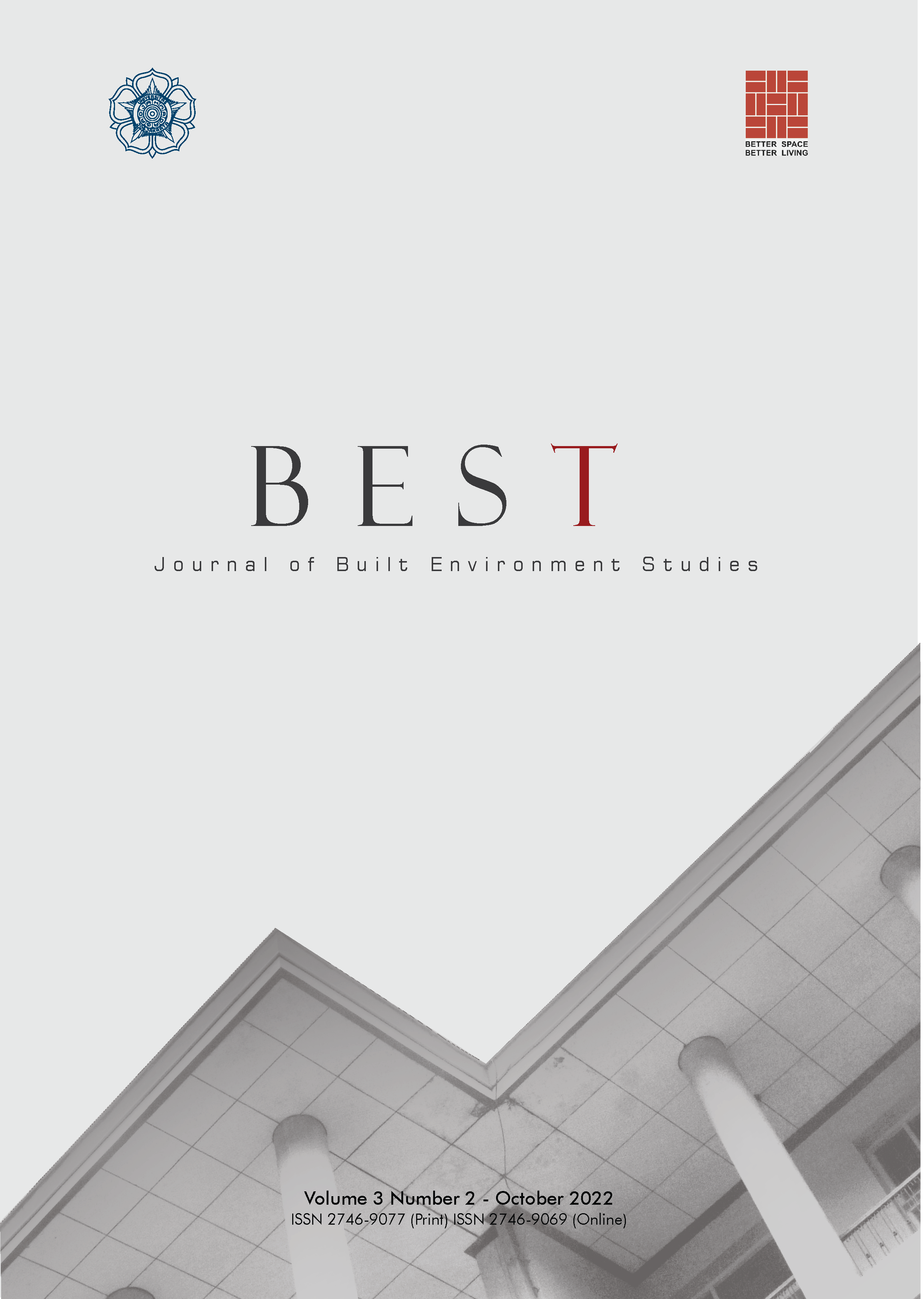Cyclist Class in Jakarta During the Covid-19 Pandemic Based on Cycling Behavior and Facility Preferences
Corresponding Author(s) : Citra Widyaningrum
Built Environment Studies,
Vol 3 No 2 (2022)
Abstract
The Covid-19 pandemic affects many aspects, including transportation. Campaigns to reduce social distance have changed people's daily travel behaviors. Moreover, increased health awareness leads to increased bicycle usage, including in Jakarta. However, the lack of proper bicycle lanes along the road in Jakarta makes cyclists unsafe. Therefore, the Bicycle Level of Service method uses to evaluate the feasibility of a section of the bicycle lane in South Jakarta. As the number of cyclists in Jakarta grows, so do their characteristics. The diversity of cyclists may also reveal facility preferences. Hence, the Latent Class Analysis is carried out to determine a cyclist’s class likelihood. A sample of bicycle users in Jakarta and its surroundings was studied using descriptive quantitative analysis. Lastly, this study performed the cross-tabulation analysis to examine the relationship between cycling classes in Jakarta and the preferences on cycling facilities during the pandemic. The study results indicate that daily mobility in Jakarta changed during the pandemic, with an increase in bicycle users and the emergence of three cyclist classes: Recreational, Sport, and True. In addition, the feasibility evaluation of the existing bicycle lane shows an increase in the bicycle level of service since the time prior to the pandemic.
Keywords
Download Citation
Endnote/Zotero/Mendeley (RIS)BibTeX
